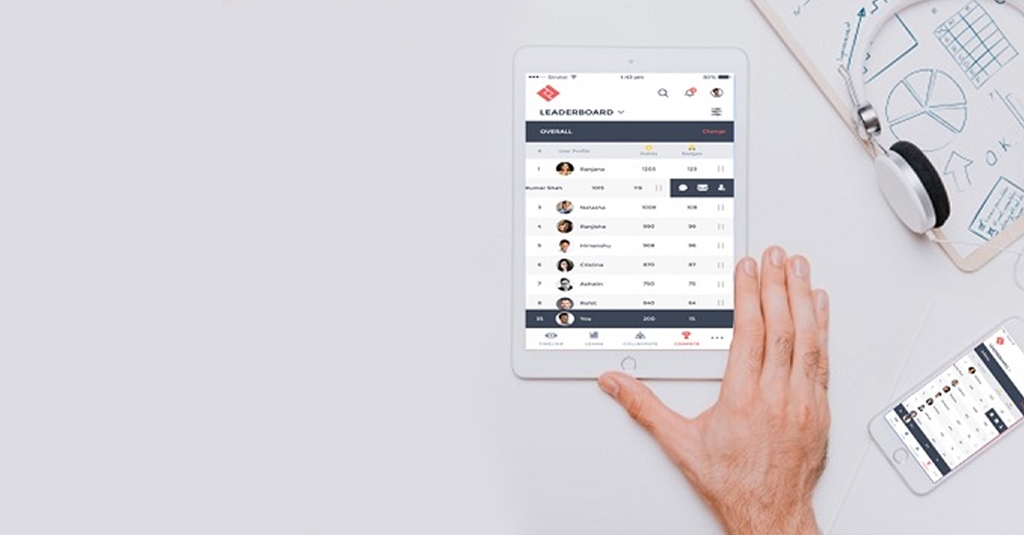Emerging Role of Modern LMS- Exploring its Features, Benefits, and Use Cases
A Learning Management System (LMS) is a robust platform which aids to deliver training for geographically spread learners. It helps to manage, impart, track, and measure the training content adequately. With ever-evolving learning needs, the deployment of a powerful e-learning platform is becoming essential for all enterprises, whether big or small. In today’s time where the majority of the workforce is shifting towards technology-aided learning, the modern LMS supports learning-anytime and anywhere.
Features of a New-age LMS
If implemented well, the utilization of LMS (Learning Management System) is an investment, thereby driving the best outcomes. There are several key features supported by the modern LMS to deliver an impactful learning experience. These include:
1- Mobile learning
It is the process to access training courses through personalized mobile devices such as smartphones and tablets. Mobile learning enables the workforce to undergo training at their own pace of time and convenience, even on the go.
2- Gamified learning
Different types of gaming elements such as badges, leaderboards, and scores are incorporated with online courses, thereby boosting overall learner engagement and knowledge retention.
3- E-commerce ready
The new-age LMS is e-commerce ready, supporting features such as wishlists, discount coupons, online payments, invoices generation, and customized payment gateway.
4- Multi-lingual support
The robust platform is Unicode compliant and supports localization, that is, multilingual user interface with an option to switch from one language to another.
5- UI personalization
Created with personalization options including Logo customization, Welcome Message, Custom Background Images & Color Schemes, modern LMS provides a personalized learning experience to all.
6- KPI-driven learning
The powerful e-learning platform provides learning from the KPI data uploaded or received from the integrated Productivity applications. The data triggers the LMS to send KPI linked content to the learner and automatically assign relevant training based on their performance metrics.
Different Variants of Modern LMS- Enterprise, Extended, and Mobile Apps
Modern LMS is available in various forms- enterprise, extended, and mobile apps as per the diversified learning needs.
- Organizations from different verticals deploy the Enterprise LMS. The platform is easy to access and provide unique features to fulfill the training needs of the intended audiences.
- The extended version of the e-learning platform supports effective training delivery for external workforce including sales professionals, dealers, channel partners, and others. The platform provides incredible features which cater to the challenges of managing a distributed workforce.
- The mobile app version of the new-age LMS supports features such as virtual classrooms, bite-sized content delivery, social learning, and more. Learners can easily access training content across their personalized mobile devices, while at home, in office, or even on the go.
Improving Scope of New-age LMS Across Different Industries
Technological development has set a significant difference in the way various organizations impart training, conduct activities, and deliver highly engaging learning experiences. Several industries are utilizing modern LMS to boost workforce efficiency and attain higher profitability. These include:
1- Healthcare
With increasing health issues and ever-changing industry regulations, training in the healthcare sector is essential to update employees on new operational procedures. Using modern LMS, healthcare companies can easily track their employee skills and manage certifications through training. Another important feature of online LMS is to provide e-courses in the form of simulations, presentations, short games and more. The blend of these modalities helps to boost learner engagement and knowledge retention, thereby improving the overall learning uptake.
2- Retail
When it comes to workforce training in the retail industry, companies face ample challenges including seasonal employees, huge turnover rates and globally dispersed learners. s. Several retail companies are leveraging the benefits of mobile app learning platforms to provide training-anytime and anywhere.
3- Automobile
Most of the automobile companies face the challenge to train their external workforce including partners, suppliers, dealers, and customers. Therefore, LMS is deployed to ensure the delivery of effective end-to-end learning solutions for a geographically dispersed workforce. The online learning platform is efficiently integrated with Dealer Management Systems (DMSs) to impart training at the point of need. The significant data is utilized from DMS so that sales employees can trigger the LMS to deliver effective learning. Consequently, it helps the workforce to learn more and perform better.
In addition to the above, even industries such as aviation, BFSI, telecom, software, cosmetics, manufacturing, and others are also utilizing robust e-learning platforms for better training experience. As modern learners’ needs are on a continuously evolving, a corporate LMS is a necessity for all organizations, whether big or small. G-Cube is a renowned e-learning services company which excels in providing a technology-aided platform that serves the tailored learning needs of all. Write to in**@gc**********.net, and we will aid you to come up with the best-in-class e-learning solutions using our proprietary G-Cube LMS.








